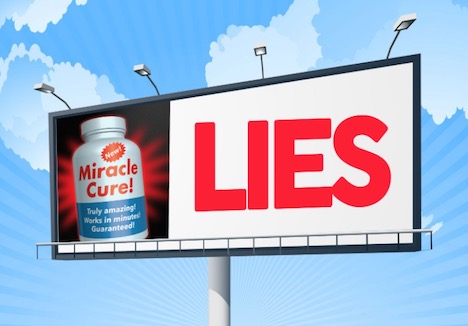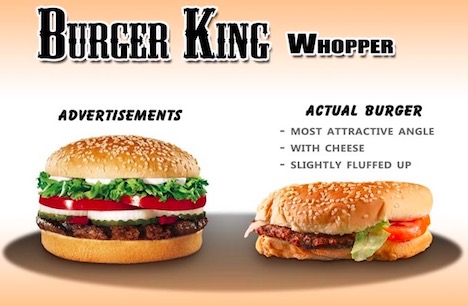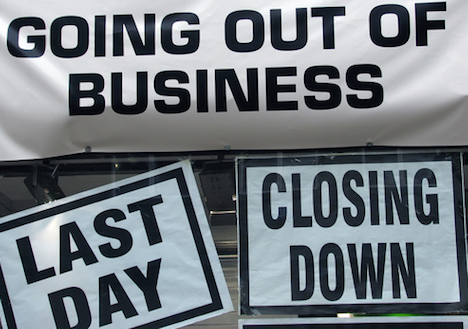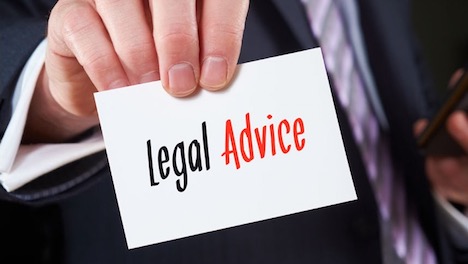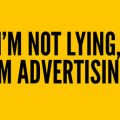8 Ways to Avoid Online False Advertising Claims
In an effort to appeal to the consumer and out of an excitement to introduce a latest offering, many companies make claims that may be perceived by some to be deceptive or downright false. This can lead to a false advertising lawsuit and to other legal actions.
What is Lawful Advertising Practices?
You are allowed to identify a product of a competitor to make a true comparison. You are allowed to make a claim about your product that is supported by scientific evidence. This is especially true if the product affects health, safety or performance. You are allowed to make subjective claims. For instance, you are allowed to announce that your product is the best. Those suing for false advertising would lose under these circumstances.
What is Unlawful Advertising Practices?
A statement is found to be an example of false advertising claims either because it is literally false or because it is presented in a manner that causes it to be deceptive. Also, the statement can either contain or omit important information that would be necessary for a consumer to make an informed decision. For example, you may tell a consumer that a car requires $0 down. However, there may be additional fees at signing that lead to the car being more expensive than what was implied. In some cases, simply confusing customers can be enough to cause a lawsuit, such as the case with a car hire company in Australia that confused their customers about available insurance options.
1. Understand Bait-And-Switch Ads
One form of deception is what is referred to as bait-and-switch advertising. This is when a company offers something that is desirable and replaces it with something that is not desirable when the customer attempts to purchase the desirable product. Also, depending on how the merchant is compensated, the merchant may not have an incentive to sell the more affordable product.
One type of bait-and-switch advertising is when a company does not stock a less expensive product. This is so the less expensive product deliberately runs out of stock.
2. Avoid Unfair Advertisements
An advertisement is unfair when the ad or business practice has a high likelihood of causing substantial bodily injury or if it is unlikely that the trouble caused by the advertisement is outweighed by the benefit to the consumer.
3. Rephrase Your Environmental-Friendly Claims
Be careful when using terms such as eco-friendly or putting similar sign on the package. Unless these terms are qualified in some way, they could be considered to be deceptive. You must prove that your product is good for the environment through scientific testing.
4. Disclose Important Information that is Often Assumed
If a product uses batteries, it is recommended to clarify that batteries are not included. If there is anything that the consumer would normally expect to be a part of the product, but it is not only not included, but also would require a significant up-sell, this needs to be mentioned.
5. Be Careful When Using ‘Going Out Of Business’ Claims
Going out of business sales need to be advertised in a proper manner. It is forbidden to advertise going out of business if your business is not going out of business or relocating. Also, in some states, there is a time limit for how long a business can state that it is going out of business. It is especially important to update a website when your company has officially gone out of business to avoid false advertising online.
6. Add Claim Substantiation
Even if your company conducts a test, it may not be considered to be reliable. If the test contradicts the claim that is made, the advertisement might still be seen as being guilty of false advertising.
To minimize the risk of being accused of false advertising, it is recommended that you substantiate even objective claims. For instance, if you claim that a product is the best tasting, there are panels of expert chefs and food tasters who can try your food and verify if it actually can be considered more tasty than another option.
7. Always Reach out for Legal Advice
Look for legal guidance from reputable legal professionals who have experience with assisting businesses in avoiding making false claims. Also, seek legal council from reputable agencies within your industry.
The FTC is responsible for determining if a particular advertisement is deceptive. To accomplish this, the FTC looks at the advertisement from the perspective of the consumer. The FTC looks at the words contained in the ad in context, including all images, and takes into consideration what the advertisement is trying to convey to the viewer.
Not only are express claims looked at, but also implied claims. An express claim is one that is made literally. For instance, “product X cuts through grease.” Implied claims are those that are not stated directly, but are assumed. For example, stating that a product cuts through grease would imply that it would assist in washing dishes.
8. Focuses On Material Claims
Another concern is whether a claim is material. This refers to whether a claim would play a major role in whether a consumer would choose to purchase the product. For example, if a customer would not care about the color of the product, this would not be material and would not need to be included in the advertisement.
The primary advertisements that the FTC focuses on are those that have an impact on a consumer’s health, such as claims regarding the effects that a product might have on a consumer’s likeliness to avoid cancer, and claims that a consumer would not likely be able to evaluate, such as a claim that a refrigerator is very efficient.
By avoiding false advertising claims, not only will your company save money in legal fees, but you will also improve the reputation of your company by not selling products through deceptive means.
Tags: advertising, business



